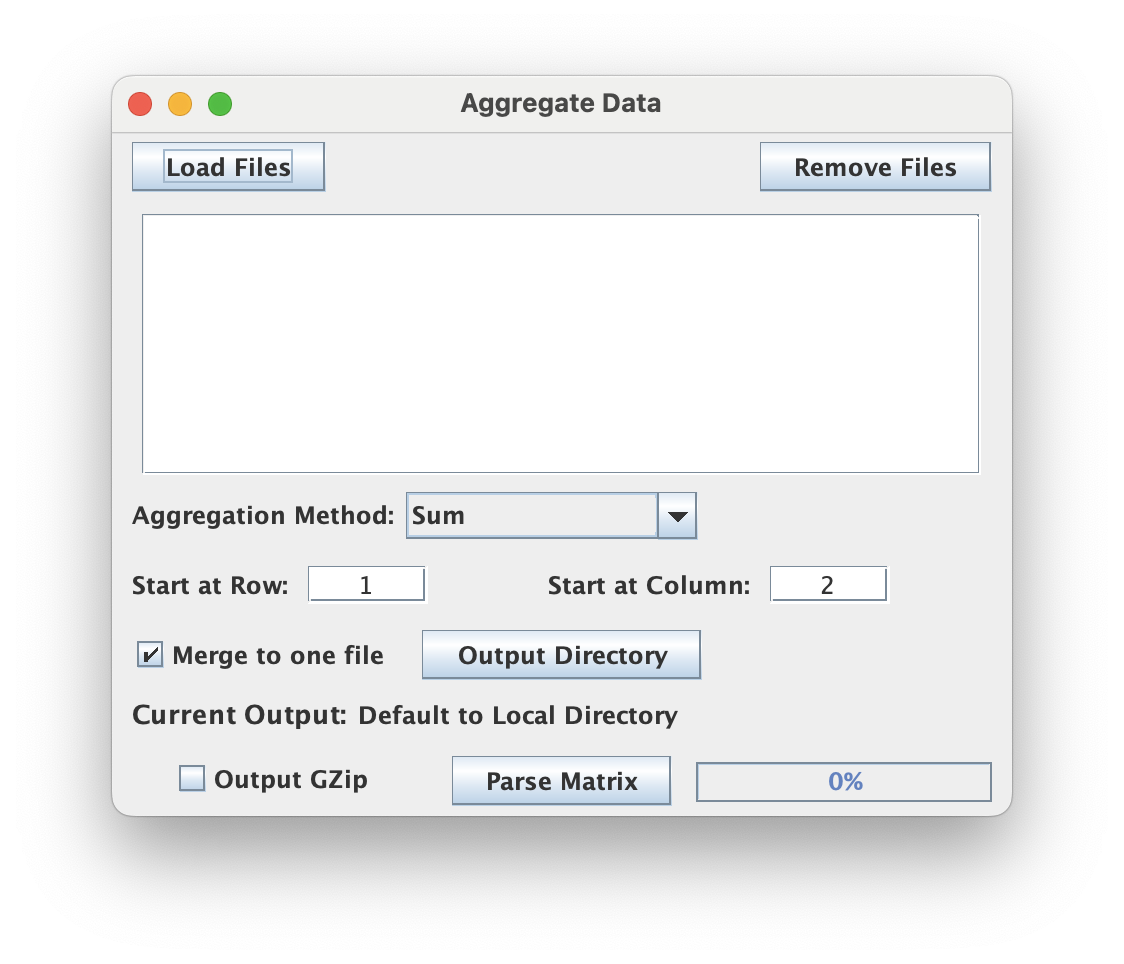Aggregate Data
Compile data from tab-delimited file into matrix according to user-specified metric.

Aggregation Method Options
- Sum
- Average
- Median
- Mode
- Min
- Max
- Positional Variance
Command Line Interface
Usage:
java -jar ScriptManager.jar read-analysis aggregate-data [--sum | --avg | --med |
--mod | --min | --max | --var] [-fhmV] [-l=<startCOL>] [-o=<output>]
[-r=<startROW>] [<inputFiles>...]
The AggregateData tool is used to process a bunch of matrix files into one matrix file.
Input Options
Since this tool process a bunch of files together, there are two ways of feeding input files:
(1) You can list them out in the command line tool,
java -jar ScriptManager.jar read-analysis aggregate-data matFile1 matFile2 ... matFileX <OPTIONS>
(2) or you can write all the paths for all your files in a single file and pass that as the input using the -f flag
java -jar ScriptManager.jar read-analysis aggregate-data inputFile -f <OPTIONS>
where inputFile is listed out line by line:
/path/to/matFile1
/path/to/matFile2
...
/path/to/matFileX
Note that absolute file paths are easier to work with. For relative paths, you'll have to check that they are built with respect to the ScriptManager directory.
Output Options
| Option | Description |
|---|---|
-m, --merge | merge to one output file |
-o, --output=<output> | Specify output file, default is "aggregate_matrix.txt" or the input filename if -f flag used |
-z, --gzip | gzip output (default=false) |
The file output can be specified by the user using this flag. Otherwise the output will be aggregate_matrix.txt in the same directory as ScriptManager. Or based on the input filename if the -f flag is used.
Aggregation Method Options
| Option | Description |
|---|---|
--sum | use summation method (default) |
--avg | use average method |
--med | use median method |
--mod | use mode method |
--min | use minimum method |
--max | use maximum method |
--var | use positional variance method |
Coord Start Options
| Option | Description |
|---|---|
-r, --start-row | |
-l, --start-col |